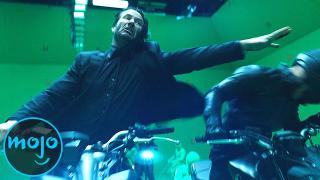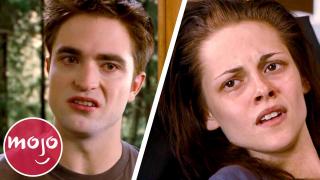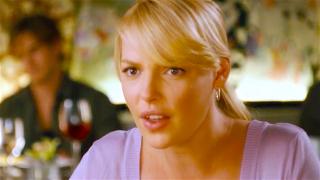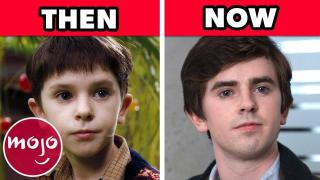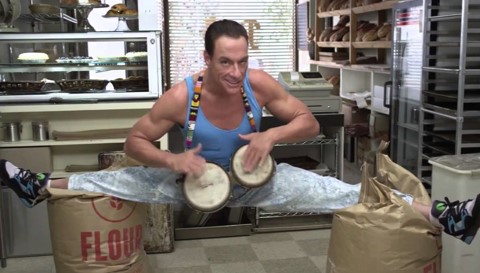Top 10 Old Hollywood Actors Who Were Black-Listed
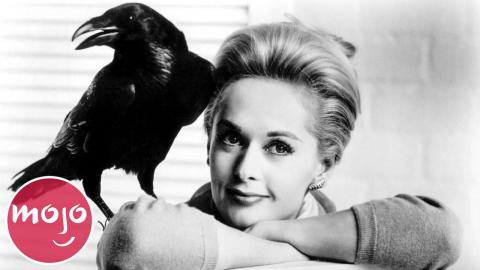
#10: John Garfield
Top 10 INSANE Stunts in John Wick Movies
We need to state in advance that many names on this list were blacklisted for the same reason. This was the “Red Scare,” a sentiment that’s been around, in one form or another, since before the 1920s. It specifically speaks to a widespread fear of communism, and old-school Hollywood actors like John Garfield often felt the brunt of this fear. This was due to Garfield’s refusal to “name names” of fellow Hollywood actors who harbored pro-Communist sentiment. The actor had previously received Academy Award nominations for his work in the 1940s, but was effectively un-hirable only a decade later.
#9: Edward G. Robinson
Top 10 Reasons Edward Cullen is the WORST
Younger viewers may not know the name “Edward G. Robinson,” but it’s likely you know his voice. Or, at least other actors who’ve performed impersonations of him. For years, Robinson’s performances served as go-to examples of the classic cinematic gangster. Movies like “Little Caesar” forever cemented Robinson’s gravelly voice and tough-guy looks with the crime cinema genre, but the actor’s liberal views held real-life consequences. He named Hollywood screenwriter Dalton Trumbo to the House Un-American Activities Committee, but this wasn’t enough to totally save his career. Robinson’s politics made it difficult for him to find high-profile work after the Red Scare, leading him to pursue more low-budget work as a way to make ends meet.
#8: Lena Horne
Lena Horne is a legendary figure of stage and screen, a triple threat in acting, singing, and dancing. She’s also long been associated with the fight for civil rights, but her road fighting for equality wasn’t always easy. Specifically, it was Horne’s association with musician, actor, and athlete Paul Robeson that affected her career during the 1940s and ‘50s. Horne herself had already made headlines when she objected to segregation policies during her USO tour of World War II. Her collaboration with Robeson in 1941 further stoked the flames of controversy, thanks to Robeson’s unapologetically left-leaning political activity. Horne would eventually come out the other side as a Hollywood icon, maverick, and legend, but her struggles underline the tumultuous political climate of the day.
#7: Burl Ives
The voice of Burl Ives is one we hear every year, around the holiday season. Ives’ work on Rankin/Bass’ “Rudolph the Red-Nosed Reindeer” is certainly iconic, but the man was already a respected voice in folk music long before his association with Yuletide. However, Ives also came under fire in 1950 when he was called out within the right-wing propaganda pamphlet, “Red Channels.” As a result, he was called to testify to the House Un-American Activities Committee two years later. He named names to alleviate the blacklist put upon him during the intervening years, but this, too, had a cost. It cost Ives the respect of some of his peers, including musician Pete Seeger, but it allowed him to once again work in Hollywood.
#6: Uta Hagen
Top 10 Actors Hollywood Wont Cast Anymore
Lena Horne wasn’t the only Hollywood actor to suffer, as a result of their association with Paul Robeson. Uta Hagen earned rave reviews for her performance in the original Broadway production of “Who’s Afraid of Virginia Woolf?” yet wasn’t able to fully transition into acting until the early 1970s. Hagen was blacklisted in Hollywood, yet she retroactively saw this period as something which, in her words, “kept me pure.” It was Hagen who ultimately had the last word, as well, becoming a celebrated acting coach and teacher, with such high-profile students as Gene Wilder and Robert DeNiro.
#5: Lloyd Bridges
It may be forgotten today, given the length and breadth of Lloyd Bridges’ career, but this Hollywood legend also suffered from blacklisting. It occurred after Bridges was summoned to speak in front of the House Un-American Activities Committee. The actor admitted that he once had been associated with an acting group that possessed ties to the Communist Party. Bridges was briefly blacklisted as a result of his work with the Actors’ Laboratory Theatre, and initially worked primarily on television shows. He continued to work throughout the 1960s and ‘70s, before landing one his most high-profile roles in the 1980 comedy classic, “Airplane!”
#4: Orson Welles
We needn’t worry about the legacy of Orson Welles too much. After all, this is the man who brought us some of Hollywood’s most important pictures, from “Touch of Evil” to “Citizen Kane.” Still, Welles was another who was named in the aforementioned “Red Channels,” although the filmmaker and actor was working in Europe while much of the Red Scare raged at home. It was this flight to Europe, combined with the ups and downs of Welles’ relationships with Hollywood producers, that hampered a once-flourishing career. Welles would recover with awards, accolades, and more for his accomplishments, but his blacklist proved that no one was immune from McCarthyism in the 1950s.
#3: Charlie Chaplin
Charlie and the Chocolate Factory Cast: Where Are They Now?
Charlie Chaplin is another name, like Orson Welles, that feels synonymous with classic, old Hollywood greatness. However, Chaplin’s political beliefs, and his dedication to them, always served as a lightning rod for controversy. “The Little Tramp” never shied away from inserting savage political commentary into his filmmaking, such as in 1940’s “The Great Dictator.” However, Chaplin would find himself an artist without a home on September 19th, 1952, after the U.S. Attorney General James P. McGranery revoked Chaplin’s re-entry permit for the United States. This was on the provision that Chaplin then be interviewed with regards to his left-leaning politics and “moral behavior,” before being allowed to return.
#2: Tippi Hedren
Tippi Hedren’s blacklisting in Hollywood is one of the few on this list having nothing to do with Communism. Instead, the roots of Hedren’s career woes lay at the feat of one man: Alfred Hitchcock. Hedren’s experience was detailed in the 2009 book “Spellbound by Beauty: Alfred Hitchcock and His Leading Ladies,” and dramatized in the 2012 HBO film “The Girl.” Both describe situations of mental and physical abuse that occurred during the filming of Hitchcock films “Marnie” and “The Birds.” Additionally, Hedren claims that Hitch made overt sexual advances on her, and then sabotaged her career when these advances were refused. Meanwhile, others who knew Hitchcock, such as actress Kim Novak, defended the director’s behavior, to the lengths of their interactions with Hitch.
#1: Jean Seberg
Top 10 Jean-Claude Van Damme Splits
Jean Seberg entered the cinematic pantheon when she starred in Jean-Luc Godard’s “Breathless” in 1960. However, her personal life was fraught with peril and paranoia, thanks to Seberg being targeted by the FBI. This was due to Seberg’s association with the Black Panther Party, an association that led to Seberg being the victim of an FBI smear and spying campaign titled COINTELPRO. Seberg starred in a number of interesting European genre pictures during the 1970s, including “Gang War in Naples” and “Kill! Kill! Kill! Kill!,” but it’s alleged that her political affiliations negatively impacted her career prospects in the States. The Hollywood offers dried up, and Seberg tragically took her own life in 1979. A note with Seberg’s body said, “I can no longer live with my nerves.”


